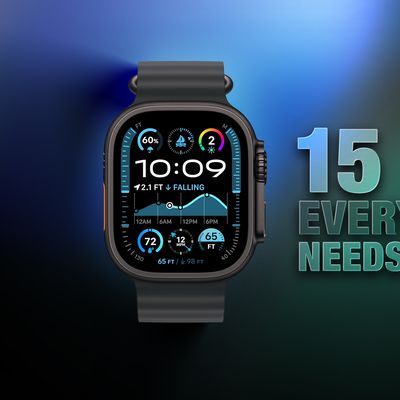Facebook CEO Mark Zuckerberg this morning penned a new missive outlining the company's plan to create a "privacy-focused messaging and social networking platform."
Facebook's new privacy-focused platform, which will see its core apps overhauled, will, according to Facebook, be built around principles that include private interactions, end-to-end encryption, ephemeral messages, safety, interoperability, and secure data storage.

Zuckerberg says that its services will be rebuilt "around these ideas" over the course of the next few years, and that as Facebook implements these changes (to both Facebook and Instagram), the company will be "taking positions on important issues concerning the future of the internet."
These changes will be implemented "openly and collaboratively, and Zuckerberg points out that many people likely won't believe Facebook is able to build such a privacy-focused platform.
I understand that many people don't think Facebook can or would even want to build this kind of privacy-focused platform - because frankly we don't currently have a strong reputation for building privacy protective services, and we've historically focused on tools for more open sharing. But we've repeatedly shown that we can evolve to build the services that people really want, including in private messaging and stories.
The rest of Zuckerberg's article goes into more detail about each of the core principles that Facebook will be building its social networks around. For Messenger and WhatsApp, Facebook will focus on making them "faster simpler, more private and more secure" with end-to-end encryption. Additional ways to "interact privately" with friends, groups, and businesses will be added to make interacting with friends and family "a fundamentally more private experience."
When implementing end-to-end encryption on its platforms, Facebook plans to improve its ability to identify and stop bad actors using patterns of activity to appease law enforcement agencies that will be upset with Facebook's planned encryption efforts.
We've started working on these safety systems building on the work we've done in WhatsApp, and we'll discuss them with experts through 2019 and beyond before fully implementing end-to-end encryption. As we learn more from those experts, we'll finalize how to roll out these systems.
Zuckerberg says that the company is working on ways to make messages more ephemeral, perhaps by deleting them after a month or a year by default, and as for interoperability, Facebook is going to make it possible for users to "send messages to your contacts using any of our services," something that will later be expanded to SMS interoperability.
Facebook says that much of its work is "in the early stages" and that it is committed to consulting with experts, advocates, industry partners, and governments to "get these decisions right."
Zuckerberg's full post can be read over on Facebook.






















